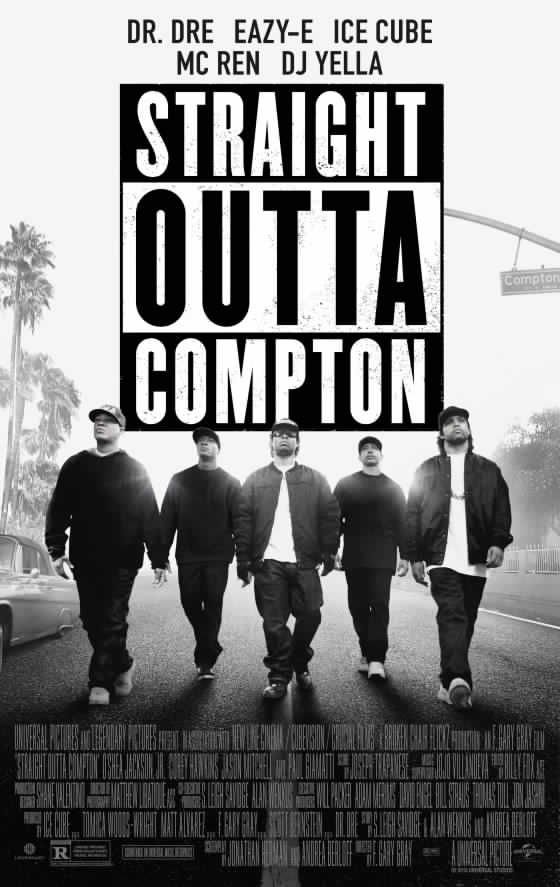N.W.A is known by most as the original west coast rap group. Hailing from south central, they were the toughest guys making the most in your face music about their day to day lives. It was something we had never seen before, and it was cool. With lyrics like “see, cuz I’m the motherfuckin villain. The definition is clear, you’re the witness of a killin,” they glorified violence, selling drugs, and the gangster life in general. With their work, N.W.A produced an image of guys that didn’t take shit from anyone, including the police.
Obviously there was always going to be some exaggeration when it comes to this sort of music, but somewhere along the line it turned from expression to glorification. On N.W.A records, South Central started to sound great if you were a young man who could hold a weapon, because you literally held all the power. According to the lyrics there was no rules, and the strong made money through selling drugs and robbing. The following lyrics from MC Ren showcase this very well:
“More punks I smoke, yo my rep gets bigger
I’m a bad motherfucker and you know this
But the pussy-ass niggas won’t show this
But I don’t give a fuck, I’mma make my snaps
If not from the records, from jacking or craps
Just like burglary, the definition is jacking”
After their creation of this sort of style, a slew of other rappers started releasing music with similar anecdotes about gang violence and street life, some of it true and some of it fictitious.
Today, there is somewhat of a new approach being taken by artists when it comes to discussing life in neighborhoods like Compton. The lyrics incorporate more of a plea for help and the actual struggles of the day to day rather than the occasional triumphs. Kendrick Lamar and other artists have begun to start this discussion through their work. However, an artist that does this almost exclusively is Vince Staples, who’s album “Summertime ’06” dives into the realities of living in one of the rougher areas of Long Beach. Staples grew up in the neighborhoods that he raps about in his songs, and makes an effort to not fabricate any of his material. In his track Norf Norf, Staples tells us that he “ain’t never run from nothing but the police,” which is in sharp contrast to Eazy E’s lyric, “I don’t give a fuck, that’s the problem, I see a motherfuckin cop I don’t dodge him.” Staples also discusses the issue of people enjoying his music about street life, but not really understanding the realities of living in an impoverished area. In an interview with Fader, he states that the people listening to his music and watching his videos will “watch us on TV, but they’re not going to Baltimore.” (Staples) In his mind producing music for this crowd is counter-productive, because it doesn’t mean anything if “there’s people out here dying and starving with no hope.” (Staples) He seems very conflicted on this issue, because he wants to highlight what is going on in in these areas without glorifying it like his predecessors.
Staples seems to also have an issue with wealth inequality or capitalism as a whole, and while he wants to make money through his music, he doesn’t want to be involved with the system. This is most likely because he has noticed that extremely poor communities come as a direct result of these economic conditions, and this is his form of protest. In his song Lift Me Up he mentions that “I need to fight the power but I need that new Ferrari,” so clearly he is conflicted on this issue as well.
In an era of hip hop that seems to glamorize living in a poor black community, Staples is trying to take a step in the other direction. He is looking to keep it real and spread a message about poverty and violence that isn’t very common among young rap artists. Vince doesn’t just want to make it out of the hood, he wants to change the system.
Interview: http://www.thefader.com/2015/06/09/vince-staples-interview-summertime-06




